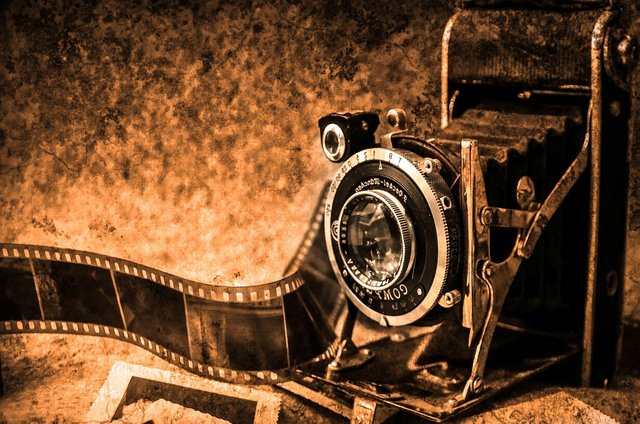Why I prefer writing Novels to Screenplays

As many of you know from my many previous past posts, I am a novel writer, screenwriter, game writer, publisher and journalist. Feel free to click on any of those links to read more about my various writing personalities.
For now, I want to focus on why I much prefer writing novels than screenplays. Not everyone realises the vast differences between the two. I once wrote an article about adapting from one story-telling medium to the other. This article is vastly different from that, in that I take a more personal look at why I much prefer the one over the other, and why I find novel writing easier and more enjoyable.
Please note that this is my personal experience, and everyone's is different.
1. LESS LIMITS, MORE FREEDOM

Image Source : Pixabay
I might have mentioned this a few times before, but film screenplays are very strict about the format and writing. When it comes to writing a novel, you can write as freely as you want. Sure, there are some guidelines out there on how to write a great story, but when it comes to descriptions, you are as free as a bird. You can write one paragraph describing a new character, or five pages on the intricacies of a flower's petal. Sure, the reader might become bored reading it, but you still have that freedom to do so.
No so with a screenplay. With a film script, you are writing to film directors, producers and actors. If you write a 5 page description on anything, your script will be thrown in the rubbish bin immediately. Each descriptive paragraph simply describes where the location is, what time it is, and what is happening in that scene. You would be lucky if you even get to mention a flower. Your best bet would be to say that Johnnie walks in a field of flowers.
Another limit is how long you can write for. It is well known in the film industry that each page in the script equates to an average of 1 minute screen time. So a 120 page script is basically a 2 hour movie. If you wrote a 120 page novel, that would not be a full length novel. Novels usually range anywhere between 250 - 500 pages (depending on genre, font settings, etc). If you wrote a 500 page film script, that would be an 8 hour movie!
Now imagine transcribing a 350 page novel into a 120 page script. You immediately begin to see why film adaptations of novels never really have everything essential in them. Which brings us to the next point on length. For some of us (those of us who don't have the leisure to read at speed everyday) a 350 page novel could take us a few days to finish. And for those of a literary mind, this is rather enjoyable. You get to solve mysteries in your own time, follow the pursuits of the characters or their love interests. With a movie, you watch it for up to 2 hours and its done. No time to daydream about what just happened, for you might miss the next scene.
Writing a screenplay is not difficult, as the format and how to write it out is pretty much set out for you. Set the scene, describe the scene, add some dialogue and action, and move it to the next scene. I know I am oversimplifying, but that's about as much as it takes. Yet, that limitation and boundaries is what takes the fun out of it for me. I would rather spend days writing out one chapter in a novel, than spend an hour writing out one scene in a film. There is just more joy in it for me.
2. FREEDOM OF SPEECH

Image Source: Pixabay
Another impact of restrictive writing is on the dialogue. In a novel, you can have your characters have the most distinctive, complicated and interesting conversation in the world. Once again, your readers may not fancy reading pages of dribble if you get it wrong, but the conversation between characters is one of the most essential elements in writing if done right. And that is both in novels and screenplays.
I've once heard it being said that the best screenplay written is the one with the least dialogue. They want action, action, action. Too much talking and the film audience falls asleep. And this may be due to the nature of each field. In film, every action leads to the next, and each scene leads to the next. The actors are being paid to act out the scenes, and would probably prefer talking as little as possible. Characters in a novel don't really care how much they talk. With film, dialogue needs to be short, concise and to the point. There is rarely time to add side talk that has nothing to do with the plot, unless you are needing to add some more pages to your script.
3. NOW YOU SEE IT, NOW YOU DON'T

Image Source: Pixabay
When it comes to writing a novel, everything you write is seen by the reader. Their brains translate it into a visual story in their mind, but the words are very visible. Your work is instantly recognisable.
With film, the viewers will never see what you wrote (unless you make the script available to the public). When they watch the movie, they are seeing the result of what the film directors and actors put together. The script you wrote will also undergo several changes as the film is made, so your original script may not even reflect what the end product is on screen.
In this regard, I much prefer having readers read what I wrote in a novel, in all its original glory, than the translated visual film of what I maybe wrote on a script.
4. YOUR CHARACTERS RULE THE SCENES

Image Source: Pixabay
As films are limited by budget, there is a limit to how many characters you can have on set. Which means, you have to spread the actions out between them so that they can get fair screen time. You wouldn't pay one actor $1 billion USD to be on the screen for 5 mins and another $2mil for the entire movie. The main characters will always get the most screen time while the others gets small smidgens here and there.
In a novel, you can have as many characters are you want (although too many may confuse your reader), and you can give them as much page time as you want. The best part of writing characters for a novel, is that their actions need to reflect their personality. Many times in film, this is neglected. Especially if they have to cut budget and lose actors, forcing them to move some actions to the other main characters. And make it seem out of character for them, so to speak.
So, in summary, for a script you have to keep count of the potential cast for the film, and for a novel, the number is endless.
5. UPDATES AND EDITIONS

Image Source: Pixabay
And this is where novels truly shine. When a novel is completed and published, many times critics and readers may comment that there are some issues with the story. Or the author would simply like to improve the novel. He or she can do so, and release an updated edition of the book. Or simply a revised version.
With a film, once it goes out, it's out. You won't see any notices calling viewers back to the screen after a few months, or buyers of dvds to come back and buy a revised movie. When critics come down hard on a movie, directors do not call actors back and say "Hey, we need to improve these scenes." We have to live with (or ignore) the mistakes made in the Silent Hill movies (haha) and wait to see if anyone will one day reboot the series and get it right.
SO WHY BOTHER WRITING SCREENPLAYS?

Image Source: Pixabay
There are many out there who would prefer the appeal to screenplays over novels. A strict format to stick to, a short 120-pager, simplicity in setting out descriptions, dialogue and actions. And of course there is your story being screened on film, and it's over in 2 hours. The greatest attraction though is the pay.
An author may wait a lifetime to just make $10 on his book. Scripts can be bought from anywhere between $50k and $2mil, and that is even before the film is even made. Of course these occassions are very rare and might not happen as many times as publishing novels, but once directors know they can come to you for film writing, you're made for life.
Even so, I still prefer writing novels. There's something to seeing your books in shelves that gives me more satisfaction than fighting for your script to be made to film. For me, novels are the epitome of storytelling.
Having said that, I can say this is only true when it comes to writing them. I spend more time watching television and movies than reading novels. I fill my time with so many activities and family quality time that I can't remember the last time I felt the desire to crack open a book and enjoy one. I'd rather relax with the wife and children watching images scroll over the tv than having a book in my hands.
When it comes to writing though... novels rule.
Header Image: Pixabay
Please support my work by subscribing for FREE to one of the following:
@shadowolfdg is a  SteemPunk and Steemit article Mentor for @schoolofminnows
SteemPunk and Steemit article Mentor for @schoolofminnows
Member of @teamsouthafrica
Post of the Day Award - @adsactly
Official Promoter for @tpot -- join our discord channel
Kind regards
Shaun M Jooste
Joint-Owner: AIR Entertainment (https://airentertainment.biz)
Director: Celenic Earth Publications (https://celenicearthpublications.wordpress.com)
Author, Screenwriter, Gamewriter, Journalist (https://celenicearth.wordpress.com)




Thank you for the insight, can see why you prefer writing books! On another note about books, I have a Kindle but still prefer the feel of a real book, have bookracks all over my house & my bedside table always has a pile of books on it! Thank you for writing...love a good movie as well, so we do need those restrictive screenplays ;)
I have to say that when I've read a novel, the movie rarely lives up to my expectations. For all the reasons you say, from an author's perspective. Consequently, there are certain films I've not seen that have been based on books. I'm told I'm nuts not to have seen the Lord of the Rings movies. There is, of course, always an exception to prove the rule. The 1986 movie, The Mission: I bought and read the book after I'd seen the film. What a disappointment. The characters were flat, and the dialogue even flatter. I came to the conclusion that Robert Bolt was a much better playwrite than novelist.
Congratulations! Your post has been selected as a daily Steemit truffle! It is listed on rank 1 of all contributions awarded today. You can find the TOP DAILY TRUFFLE PICKS HERE.
I upvoted your contribution because to my mind your post is at least 19 SBD worth and should receive 186 votes. It's now up to the lovely Steemit community to make this come true.
I am
TrufflePig, an Artificial Intelligence Bot that helps minnows and content curators using Machine Learning. If you are curious how I select content, you can find an explanation here!Have a nice day and sincerely yours,

TrufflePigCongratulations @shadowolfdg! You have completed the following achievement on Steemit and have been rewarded with new badge(s) :
Click on the badge to view your Board of Honor.
If you no longer want to receive notifications, reply to this comment with the word
STOP